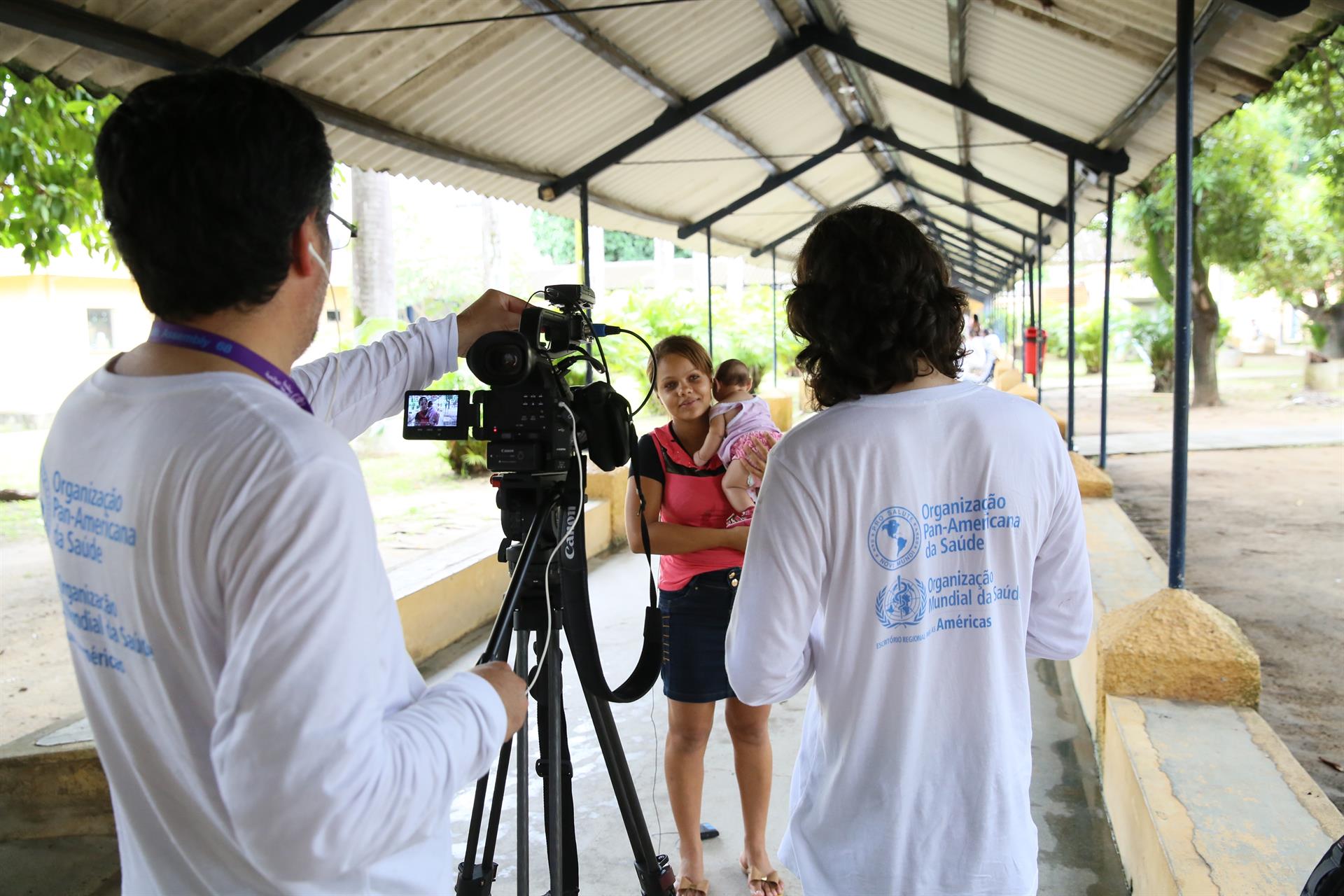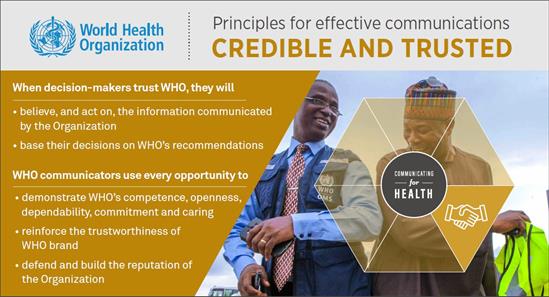Planning questions
Communicators should consider these planning questions to help decide how to communicate with the aim of building and maintaining credibility.
- What is WHO’s role as a global health authority in this health issue?
- What does WHO know about the health issue and what questions still need to be answered?
- How aware are at-risk populations and other decision-makers of WHO’s status as a credible resource on the specific health issue?
- What other organizations are perceived by the audiences as trusted on this health issue? How can WHO align with them?
- Are partner organizations’ messages aligned with those of WHO?
- Who is the best WHO spokesperson for this issue?
- Are there any reputational risks related to the health issue, such as threat to WHO’s reputation, perceived value or standing in global health? Should these be considered in planning communication activities?
Background
The components of this principle focus on strategies to reinforce public trust in WHO by demonstrating:
- competence: WHO has technical expertise in the health issue and its information is accurate and consistent with other experts and trusted organizations;
- openness and honesty: WHO is transparent in its work and the Organization is honest about what it knows, and what it does not know;
- dependability: WHO does what it says it will do; and
- commitment and caring: WHO is committed to its mission and cares about the health of all people.
Tactics to apply to make your communications credible and trusted








